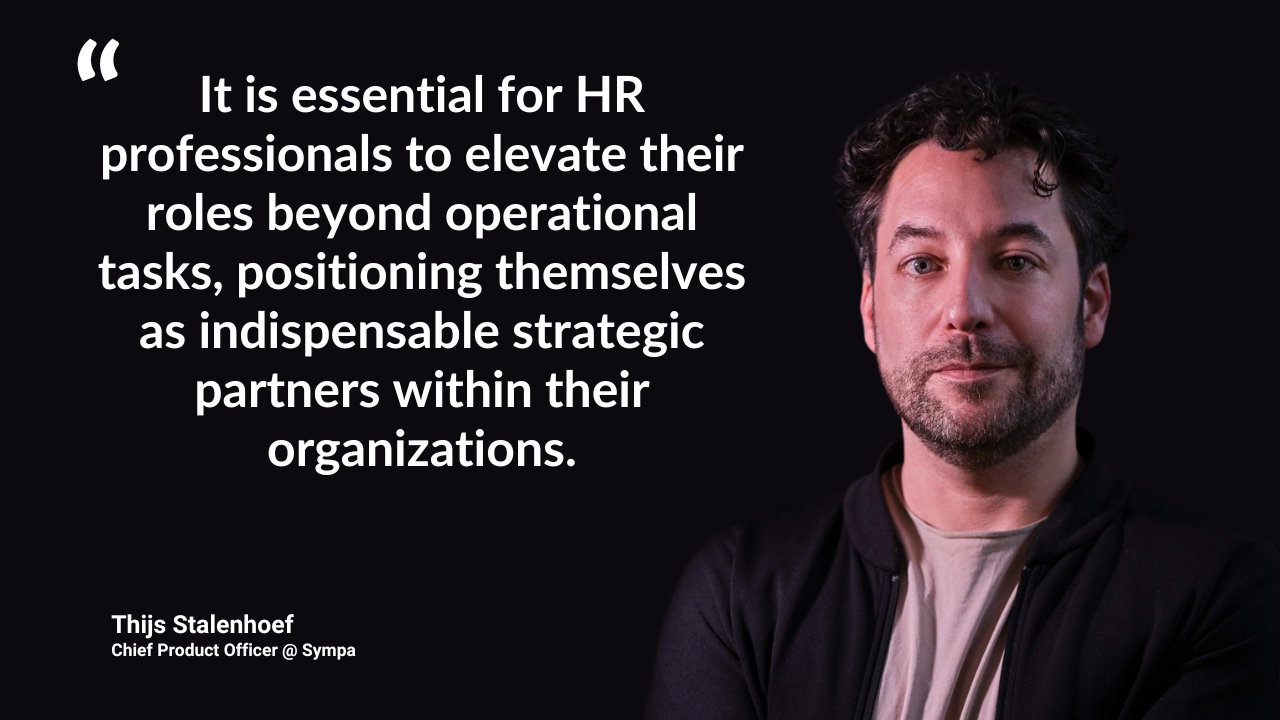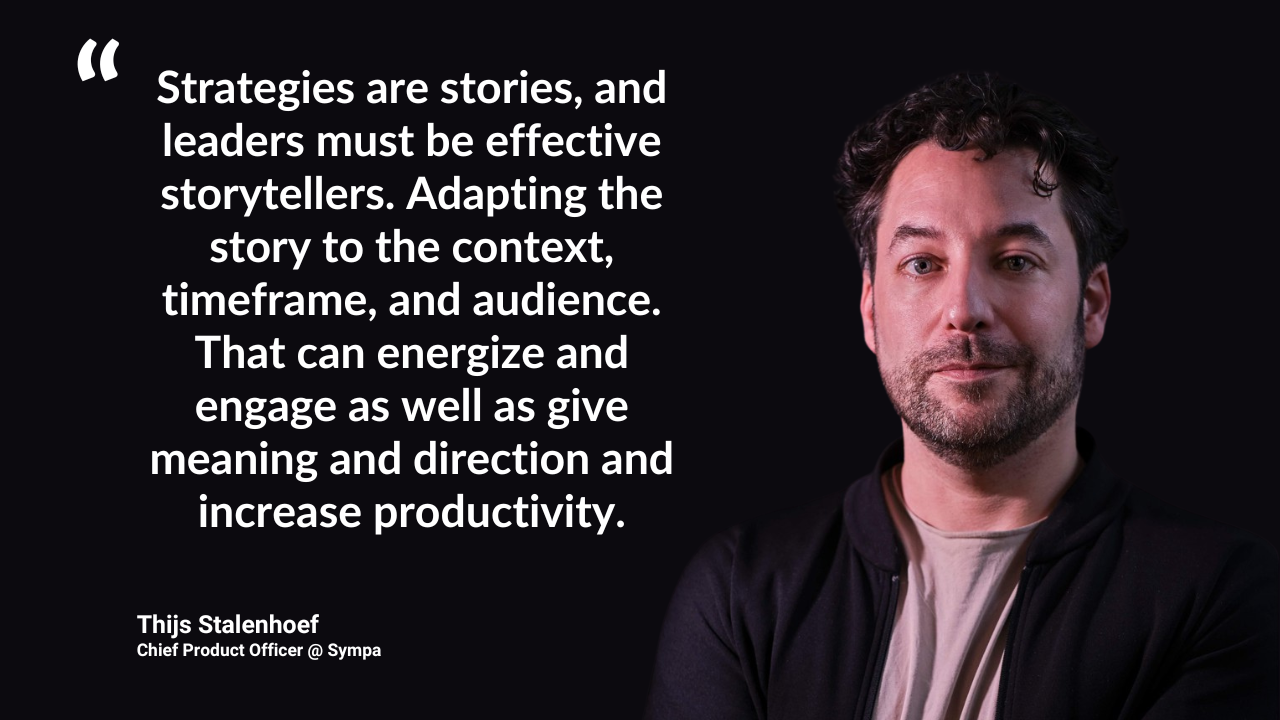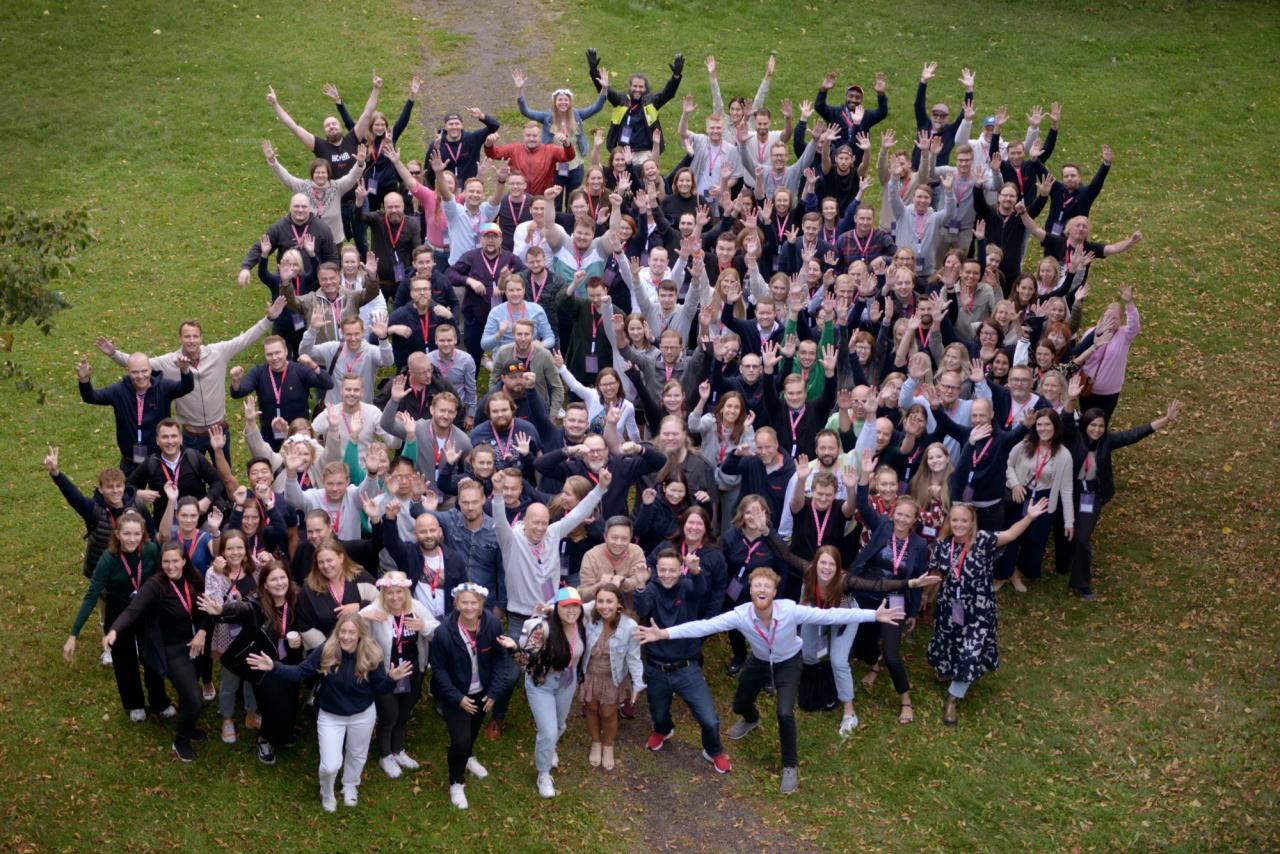Dear HR-leader - now is the time to take your seat at the C-level table!
Human Resources (HR) stands at a critical crossroads. Traditionally viewed as a support function, HR's potential to influence and drive strategic business outcomes has never been more apparent. As we navigate these changes, it's essential for HR professionals to elevate their roles beyond operational tasks, positioning themselves as indispensable strategic partners within their organizations.

But before we get started - allow me to introduce myself.
I'm Thijs Stalenhoef, originally from the Netherlands and now based in Denmark for over 17 years, with a small “detour” to the Silicon Valley, California, US, where I spent some time at Apple as well as the Danish founded company Tradeshift. With a background in product management and development, I have experience in senior leadership across the tech industry over more than 25 years. My journey has lately led me to become the Chief Product Officer at Sympa, drawn by the challenge of redefining HR's impact through technology. At Sympa, my goal is to shift HR from its traditional, supportive role to a strategic powerhouse that drives organizational success. One of the key reasons I would love to see that happen is that as a senior leader, I want and need a strategic partner in HR to help make the business successful. My passion lies in leveraging HR software to make that happen and ensuring that HR is a key player in company strategy and growth. Talking to many of Sympa’s clients has fortunately led me to believe that I’m not alone in this desire!
In this article, I intend to delve deeper into some of my most important messages for HR professionals, coming both from my own leadership experience working with HR as well as many conversations I’ve had with HR professionals about their roles and struggles. There is always more for me to learn and understand but I sincerely hope these provide inspiration.
The Strategic Role and Value of HR
The true value of HR lies in its ability to manage and optimize the organization's most significant investment - its people. As businesses increasingly recognize the direct correlation between workforce management and overall performance, HR's role must shift focus towards strategic planning and execution. This transformation firstly requires a profound understanding of the business, its challenges, and the competitive landscape, and secondly the ability to guide the people in the company to address these challenges effectively. Strategies are stories, and leaders must be effective storytellers. Adapting the story to the context, timeframe, and audience. That can energize and engage as well as give meaning and direction and increase productivity. Those are clear and strategic HR goals! Are you an effective storyteller? Are you able to train the leaders of your company to be strategic storytellers? If HR professionals can articulate the value of HR initiatives clearly and connect these to business outcomes, they can influence other leaders to invest in human capital development.

Collaboration and Alignment with Business Leaders
Critical to achieving strategic impact is HR's collaboration with business leaders. These partnerships enable HR to proactively address workforce needs, ensuring alignment with business objectives. By fostering open communication and leading the discussion with business leaders, HR can drive decisions, enable necessary changes, and lead initiatives that significantly contribute to the company's success.
Proactivity in Strategic Planning
HR should not merely react to strategic directions but should actively participate in shaping organizational strategy. This proactive approach requires HR to anticipate future workforce needs, and present solutions that align with the company's long-term vision. This way, key initiatives like DEI, engagement, learning and more are contextualized and become core to the company strategy, not something tacked on to the side.
First things first?
We like to say that the best way to be effective in our position is to do “first things first”. When taking leadership anywhere it is tempting to start with a focus on the operational challenges. For HR, perhaps a new HRIS (Human Resources Information System) is long overdue? Do contracts, benefits and labor law compliance need an overhaul? Is recruitment delivering and is proper performance management in place? Those things are clearly important, but don’t fall into the trap of assuming there’ll be time for strategy later. You should allocate sufficient time to engage with your C-level peers to understand their strategy and plans, and do so early on. That helps you formulate your own strategy, which in turn helps you prioritize those operational initiatives. This is the only way out of continuous firefighting. If there is one thing I’ve learned from all areas of business is that strategy doesn’t magically arrive one day. You must actively go out, create one and start executing on it in order to get out of operational challenges.
Technology as a Strategic Enabler for HR
Advancements in HR technology have provided unprecedented opportunities for HR to enhance its strategic contributions. Tools like HRIS not only automate administrative tasks but also offer valuable data insights and ways to work with and enable the business. Beyond allowing HR professionals to make informed decisions, forecast future trends, and measure the ROI of their initiatives, it is important to start thinking of these tools as ways of working with and enabling leaders. Let the business in!
Tools for Agile HR Practices to Free up Time for Strategic Initiatives
Adopting agile HR practices empowers leaders and teams throughout the organization to manage many HR functions independently. This approach allows the HR department to concentrate on strategic initiatives, transforming HR from a department overwhelmed by administrative tasks to one that is a catalyst for organizational growth and innovation.
Skill Development and Workforce Planning
A pivotal aspect of HR's strategic role is managing the alignment between the workforce's skills and the company's strategic goals. Identifying skill gaps, investing in employee development, and ensuring talent alignment are essential for achieving strategic objectives. HR must lead in this domain, guiding the organization in preparing its workforce for future challenges and opportunities. This is critical yet it way too often falls by the wayside as budgets get cut. As an industry and practice we need to find ways to make a stronger case for learning, as it is the primary way to both retain talent as well as handle necessary organizational changes.
Maintain an Organizational Learning and Development “Backpack”
To go beyond addressing immediate skill gaps, HR should prioritize ensuring that all employees have a comprehensive grasp of the company's strategy, products, and competitive standing. What makes your company what it is! This on-going learning and development process is not a one-time event but a continuous effort. This holistic approach cultivates an engaged and knowledgeable workforce, empowering them to contribute effectively to the company's strategic objectives. Think of it as an up-to-date organizational "backpack" filled with learning materials, such as presentations, videos, and text, providing employees with operational awareness.
In conclusion
As HR transitions from an operational support role to a strategic partner, it is imperative for HR professionals to embrace this change. By focusing on strategic alignment, leveraging technology, working with leaders, and fostering a culture of continuous learning and development, HR can significantly influence the direction and success of their organizations. The future of HR is strategic, and the time to embrace this new role is now.












